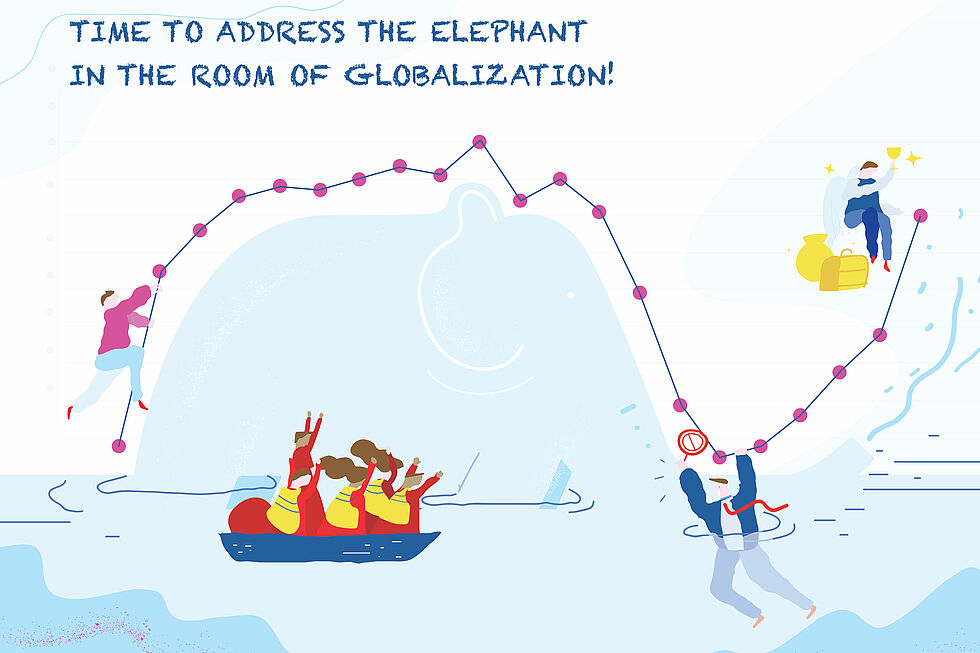Five things for a democratic, social and just Europe
There is a huge debate about how the European Union needs to change to meet the requirements of social democracy. With Italy the last in a row of countries where populists have joined the political mainstream, the job has become more challenging and urgent. Friedrich-Ebert-Stiftung (FES) identifies five areas to influence and work on as particularly essential for a democratic and just future for the EU.
1. Strengthen citizens‘ participation and the role of the European Parliament!
European citizens perceive a massive democratic deficit in the EU; the findings of a recent eight-country survey could not be clearer on this (link to survey). To address this, citizens want the right to decide on EU policy via referendum. Changes should not stop there. It is necessary to provide the European Parliament with the right of legislative initiative and heightened control and co-decision-making rights. Currently the European Commission has a near monopoly on legislative initiative in the EU and the European Parliament has only the right to invite the Commission to present legislative proposals (link to publication).
2. Create a common European defence union!
Numerous emergencies in the European Union’s strategic neighbourhood, hybrid security threats, years of uncoordinated cuts in defence spending and rapidly evolving global trends have all challenged the EU’s role as a security actor in a multipolar world. With Brexit, an important partner leaves the EU and the implications of this decision in the area of security and defence policy are still unclear. The Common Security and Defence Policy (CSDP) needs to be more efficient and more effective if it is to meet today’s security challenges and promote the EU’s own values and interests. To this end, we need a strategic upgrade, reforms of institutions, procedures and financing as well as harmonization of capabilities and defence industries (link to study); it also needs to fire the imagination of its citizens!
3. Build more solidarity into EU refugee policy!
The current crisis in EU refugee policy has rightly and repeatedly been characterized as a crisis of solidarity among the member states, which has ultimately manifested itself in a deep polarization concerning the legal and ethical handling of refugees. To overcome the impasse, we need to work towards strengthening the European Border and Coast Guard (EBCG, formerly FRONTEX), establish an EU asylum agency (link to study) and make sure uniform human rights standards exist for the reception and placement of refugees in the EU where solidarity plays a key role in the allocation of responsibility for distribution of asylum seekers (link to study).
4. Harness the effects of digitization together in a European way!
The labour-reducing effect of digitization poses social and labour challenges to the member states of the European Union. A variety of platform-based services are now a click away from end-users, but at the expense of workers subjected to precarious work. The European Commission has so far ignored the social challenges of the platform economy. We need a European approach to achieve decent work in the platform economy (link to study) and that will stop social dumping in the digital labour market and allow for fair competition. An EU framework directive on minimum labour and social standards in the platform economy can strengthen the social dimension of the digital single market (link to study).
5. Set common actions against tax fraud, evasion and avoidance on a European level!
The EU is a paradise for corporations that want to minimize their tax burden. The liberalization of the internal market has exacerbated tax competition between EU Member States. Due to the capital mobility, transfers of taxable profits from countries with normal taxes to low-tax countries are taking place. As a result, Member States collectively are foregoing considerable tax revenue that could be funding government services and promoting socially just democracy. The introduction of the Common Consolidated Corporate Tax Base (CCCTB), which amounts to the single taxation of companies with subsequent formulaic tax revenue sharing, is likely to counteract these trends (link to study).
###
Stella Meyer studied political management with a focus on issues of European integration. She is currently working in the International Policy Analysis unit in FES Berlin.
About FES Connect
Connecting people, in the spirit of social democracy, we source and share content in English from the German and international network of the Friedrich-Ebert-Stiftung.





